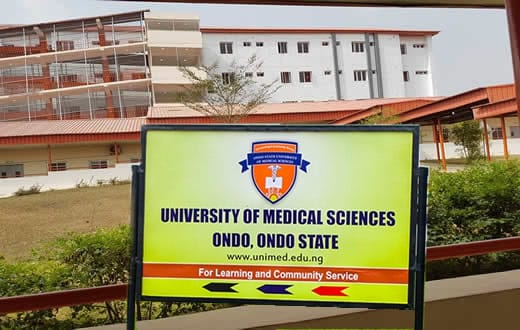The University of Medical Sciences Teaching Hospital (UNIMEDTH) in Ondo State, Nigeria, has begun piloting a system to digitally collect and store the data of its patients in response to an impactful story by Flora Iweanya, one of our Digital Public Infrastructure Journalism Fellows.
On May 29, 2025, the pilot commenced with an outlook to migrate all patients’ data from a manual storage system to a digital one. The day of the commencement of the pilot was exactly five months after Flora’s story; ‘Building an Efficient Digital Health System in Nigeria: Connecting Healthcare Providers and Citizens was published in January 2025.
It was this story that brought into focus, the need for a digital records administration system at the Ondo State Teaching hospital. The journalist capitalised on her personal experience and a new sense for news that she says she developed from her participation in the Fellowship to make the case that manual records keeping is inefficient, costly and a source of delays and frustration for patients.
“The Fellowship helped me understand how digital systems like ID cards, health records, and payment platforms can work together to make public services more efficient,” she explained. “That understanding guided me in framing the story and in showing how a digital health system could save time, reduce costs, and ultimately save lives.”
Flora adds that, “As a journalist and a mother, I’ve seen how patients move from one hospital to another without a central medical record. This often leads to repeated tests and wrong diagnoses. I wanted to show that digital systems can change that reality.”
The story is one of six that she was required to write as part of her participation in the Fellowship on DPI Journalism. In it, she leverages expert voices, including that of Dr. Kehinde Olaogbe, President of the Ondo State Association of Resident Doctors, to make the case for government to develop a national digital health card and data management framework.
She tells the MFWA that in spite of her personal experience, she stepped out of the way and allowed the opinions of the experts she had interviewed to carry through so the story would satisfy the humanisation techniques that she learned during the Fellowship.
“As part of this positive development, the Ondo State Ministry of Health has also started engaging technology partners to explore ways of introducing digital record-keeping systems across hospitals,” Flora shared in an email to MFWA.
The DPI Fellowship’s training modules on solutions journalism, digital governance, and investigative storytelling have strengthened Flora’s capacity to analyse complex policy issues and present them in relatable story forms that inspire change. Her work has contributed to a growing national conversation on digital health reform in Nigeria, demonstrating how evidence-based journalism can drive change at both the institutional and national levels.
About the DPI Journalism Fellowship
The Digital Public Infrastructure (DPI) Journalism Fellowship is a flagship initiative of the Media Foundation for West Africa (MFWA), implemented in partnership with and with funding support from Co-Develop. The Fellowship equips journalists across West Africa to understand, investigate, and report on the region’s digital transformation, from digital IDs and data exchanges to e-payment systems to promote transparency, inclusion, and accountability. Since its launch in 2023, the Fellowship has trained 65 journalists from 10 West African countries, who have collectively produced over 370 stories on digital transformation and governance across the region.



